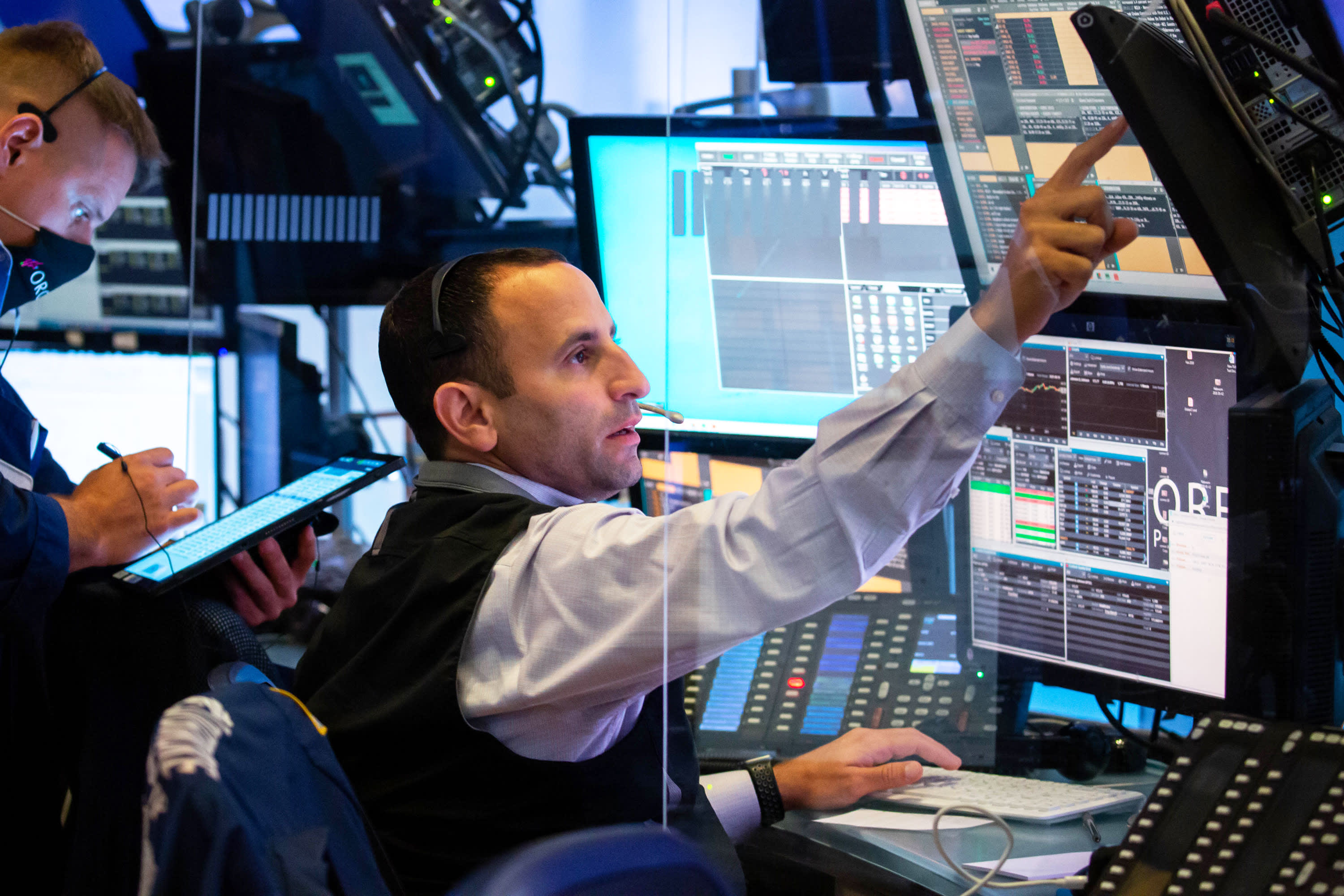Nasdaq stocks continue to struggle, but Dow adds 90 points on Wednesday

The S&P 500 and the Dow Jones Industrial Average rose slightly on Wednesday, but the technology sector struggled again as the 10-year Treasury yield traded volatilely.
The Dow rose 90.73 points, or 0.26%, to 34,390.72, and the S&P 500 added 0.16% to close at 4,359.46. The tech-heavy Nasdaq Composite was the laggard, falling 0.24% to finish at 14,512.44. The moves came after the Nasdaq posted its worst day since March on Tuesday amid a spike in bond yields.
The 10-year Treasury yield eased on Wednesday morning to trade below 1.5% but bounced back toward 1.54% in afternoon trading. The benchmark yield rose as high as 1.56%.
During the prior session, the yield touched a high of 1.567%, the current high-water mark for a weeklong run that has put pressure on growth stocks.
Tech stocks, which were hit hardest during Tuesday’s market rout, struggled to maintain a rebound on Wednesday. Shares of Apple rose 0.7%, and Netflix jumped more than 2%, but shares of Amazon and Alphabet declined. The Nasdaq was in the lead when the market opened but fell behind the other major averages as the session progressed and Treasury yields recovered.
Meanwhile, defensive stocks performed well as the utilities sector outperformed. Additionally, aerospace giant Boeing rose more than 3% to be one of the the best performers in the Dow. Energy stocks rose again even as natural gas prices pulled back sharply.
“Higher bond yields post last week’s more hawkish [Fed], along with higher oil prices, stabilization in high frequency economic indicators, and evidence that the latest COVID surge in the US has peaked, have pressured the Growth trade and bolstered the Value and Small Cap trades – a shift in leadership/ rotation that’s become yet another hurdle for the S&P 500 given the index’s heavy bias towards secular growth,” Lori Calvasina from RBC Capital Markets said in a note. “Our bottom line, we think choppy conditions in US equities will persist a while longer.”
Semiconductor stocks dipped after Micron gave an earnings and revenue outlook for the first quarter of 2022 that missed consensus estimates, sending shares down 2%. Nvidia and Advanced Micro Devices also declined.
On the positive side, shares of discount retailer Dollar Tree jumped more than 16%, making it a top performer in the S&P 500, after the company announced that it was increasing its stock buybacks and experimenting with higher prices in some locations.
The issues for chipmakers and price hikes by retailers come amid growing concern about supply chains, which have seen continued disruptions from the Covid-19 pandemic.
Fed Chair Jerome Powell said at a European Central Bank event on Wednesday that it was “frustrating to see the bottlenecks and supply chain problems not getting better, in fact at the margins apparently getting a little bit worse. We see that continuing into next year probably, and holding up inflation longer than we had thought.”
Investors were also watching debates around the debt ceiling and government spending in Washington. Treasury Secretary Janet Yellen told House Speaker Nancy Pelosi Congress has until Oct. 18 to raise or suspend the debt ceiling and that failure to do so would have severe consequences for the economy. JPMorgan Chase CEO Jamie Dimon said the bank was prepping for the possibility of the U.S. hitting the debt limit.
Senate Majority Leader Chuck Schumer is pushing for his chamber to vote on a bill on Wednesday that would extend government funding through early December, while the House of Representatives was preparing to vote on a bill that would raise the federal debt limit.
“A day like today, to me, the calm doesn’t necessarily represent calm. What it represents to me is we’re waiting to see what happens in Washington,” said Shawn Snyder, head of investment strategy at Citi U.S. Wealth Management, said of Wednesday’s relatively muted market action.
On the economic data front, pending home sales rose 8.1% in August, according to the National Association of Realtors, well above the 1.2% expected by economists surveyed by Dow Jones.
The Dow and S&P are now down 2.7% and 3.6%, respectively, for September. The Nasdaq is down 4.9%.
-CNBC’s Jeff Cox contributed to this report.




